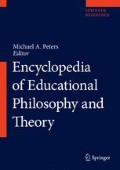Access this chapter
Tax calculation will be finalised at checkout
Purchases are for personal use only
References
Bernstein, B. (1971). On the classification and framing of educational knowledge. In M. Young (Ed.), Knowledge and control. London: Collier-MacMillan.
Bourdieu, P., & Passeron, J. C. (1977). Reproduction in education, society and culture. London: Sage.
Cassen, R., & Kingdon, G. (2007). Tackling low educational achievement. York, UK: Joseph Rowntree Foundation.
Lauder, H., Brown, P., & Tholen, G. (2012). The global auction model, skill bias theory and graduate incomes. In H. Lauder, M. Young, H. Daniels, M. Balarin, & J. Lowe (Eds.), Educating for the knowledge economy? Critical perspectives. London: Routledge.
Lingard, B., Martino, W., & Rezai-Rashti, G. (2013). Testing regimes, accountabilities and education policy: Commensurate global and national developments. Journal of Education Policy, 28(5), 539–556.
OECD. (2013). Synergies for better learning: An international perspective on evaluation and assessment. Paris: OECD.
Pritchett, L., Banerji, R., & Kenny, C. (Eds.) (2013). Schooling is not education: Using assessment to change the politics of non-learning. Center for Global Development. Washington DC. Retrieved from www.cgdev.org.
Resnick, L., & Resnick, D. (1992). Assessing the thinking curriculum. In B. Gifford & M. O’Connor (Eds.), Future assessments: Changing views of aptitude, achievement and instruction. Boston, MA: Kluwer.
Sutherland, G. (1984). Ability, merit and measurement.Oxford, UK: Clarendon Press.
Torrance, H. (1995) (Ed.). Evaluating authentic assessment. Maidenhead, UK: Open University Press.
Torrance, H. (2011). Using assessment to drive the reform of schooling: Time to stop pursuing the chimera? British Journal of Educational Studies, 59(4), 459–485.
Torrance, H. (2015). Blaming the victim: Assessment, examinations and the responsibilisation of students and teachers in neo-liberal governance. Discourse: Studies in the Cultural Politics of Education. Online first: doi: 10.1080/01596306.2015.1104854.
Author information
Authors and Affiliations
Corresponding author
Editor information
Editors and Affiliations
Rights and permissions
Copyright information
© 2017 Springer Science+Business Media Singapore
About this entry
Cite this entry
Torrance, H. (2017). Political Aspects of Assessment. In: Peters, M.A. (eds) Encyclopedia of Educational Philosophy and Theory. Springer, Singapore. https://doi.org/10.1007/978-981-287-588-4_392
Download citation
DOI: https://doi.org/10.1007/978-981-287-588-4_392
Published:
Publisher Name: Springer, Singapore
Print ISBN: 978-981-287-587-7
Online ISBN: 978-981-287-588-4
eBook Packages: EducationReference Module Humanities and Social SciencesReference Module Education

